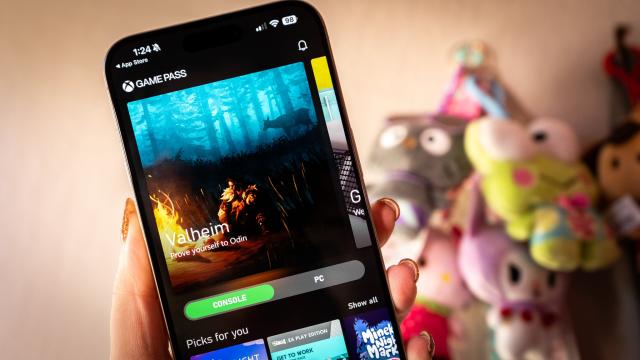Apple is granting more access to its manicured walled garden to comply with the Digital Markets Act (DMA) in the European Union (EU). In a press release, the company announced a heaping of forthcoming iOS, Safari, and the App Store changes, including support for apps from third-party app stores and the ability to set a browser engine other than Safari’s WebKit as the default.
Most changes will only apply to Apple’s EU users with Mac and iPhone hardware, like the ability to use browser apps other than Safari. But there’s one feature in particular that will give the iPhone a little more Android flavouring for everyone around the globe. Since Apple is opening iOS to third-party app stores, it will finally allow third-party game streaming services. Apps like Nvidia’s GeForce Now and Xbox Game Pass will launch on the iPhone. Better yet, they’ll run locally rather than emulated through a mobile browser. You’ll have to bring a compatible Backbone or Razer Kishi controller, which you’ll probably want anyway if you’re already waving the Gaming on Apple Devices freak flag.
Streaming gaming isn’t the only category getting an EZ Pass. Apple also allows apps to host mini-apps, mini-games, chatbots, and other plug-ins on iOS. They can even use Apple’s in-app purchase system so you can buy content. That’s fun!
Of course, it’s not all red roses around the garden. Apple reminds its users in its press release that without its curation, you’re in danger. “Inevitably, the new options…create new risks to Apple users and their devices.,” writes Apple. The company warns it doesn’t have much power over apps that “contain scams, fraud, and abuse, or that explore users to illicit, objectionable, or harmful content.”
The new rules are also ruffling some developer feathers. CNBC points out that Apple is adopting a new fee structure that will charge a per-installation fee to developers who don’t host in the company’s app stores, which could cost just as much as a typical 30% app store fee.
You can learn about the upcoming changes on the Developer Support page. The new APIs—of which there are about 600—are also available in the latest iOS 17.4 beta. All the other capabilities will be rolled out to the 27 EU countries starting March 2024.
